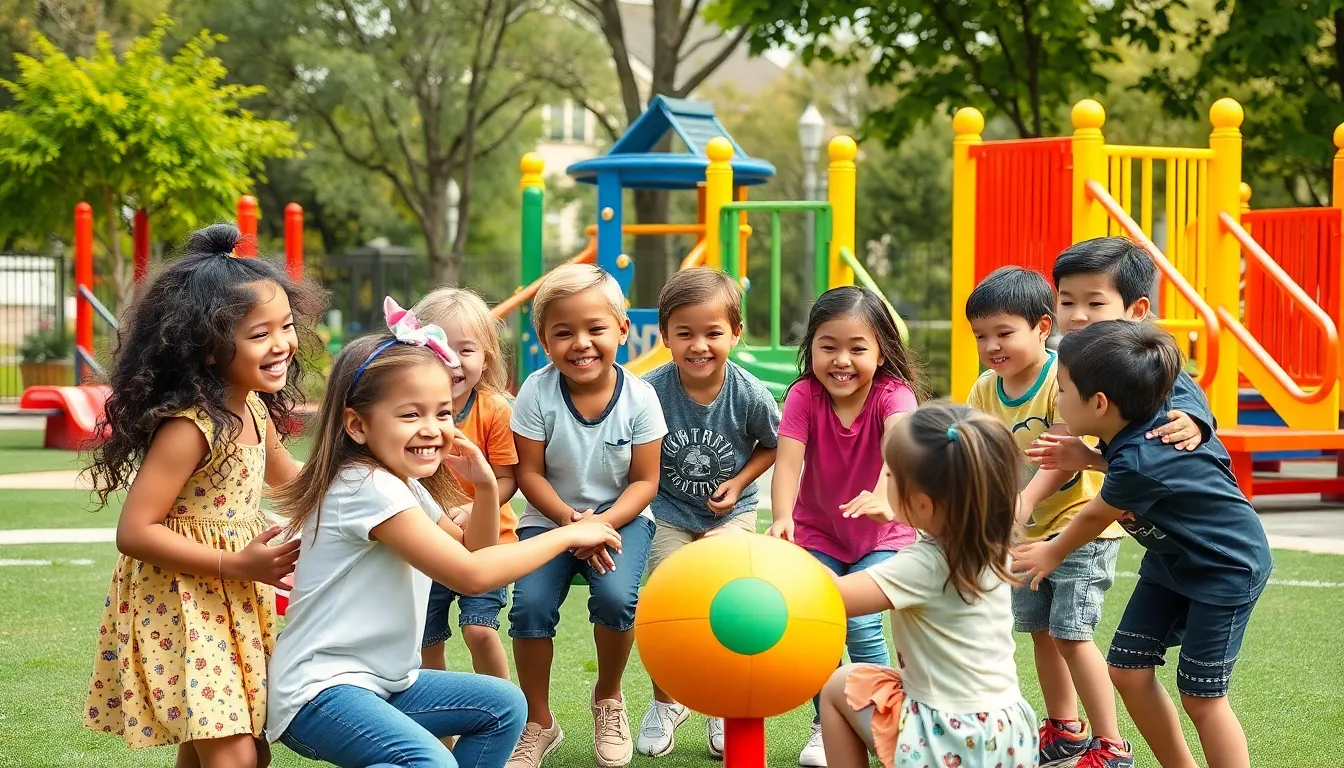Table of Contents
ToggleIn today’s parenting landscape, permissive parents are like the cool uncles of child-rearing—fun, laid-back, and always ready to let the kids have one more cookie. But while these parents might win the “Fun Award,” their approach raises eyebrows and questions. Is it really all sunshine and rainbows when kids get to set the rules?
Understanding Permissive Parents
Permissive parents adopt a relaxed approach to child-rearing, emphasizing enjoyment and freedom. This style raises questions regarding the long-term effects on children’s development.
Defining Permissive Parenting
Permissive parenting refers to a style where parents exhibit high responsiveness yet low demands. They encourage open communication and often avoid setting strict rules, aiming for companionship rather than authority. Rather than enforcing boundaries, permissive parents focus on nurturing their child’s interests and desires. Characteristics such as flexibility and an emphasis on fun define this approach. Research has explored its impact, revealing both potential benefits and downsides in child development outcomes.
Characteristics of Permissive Parents
Permissive parents often prioritize their child’s happiness over discipline. They tend to be warm and nurturing, creating a friendly atmosphere at home. Emotional connections play a significant role, influencing decision-making processes. Allowing choices for their children becomes a norm, often leading to fewer restrictions. Encouragement of self-expression is common, resulting in a less structured environment. This parenting style may create close relationships but can lead to challenges with authority in children.
Effects of Permissive Parenting

Permissive parenting significantly impacts children’s emotional and social growth. This parenting style fosters a warm environment, but it can also create long-term challenges.
Emotional Development
Emotional development often reflects the balance between support and structure in a child’s life. Children raised by permissive parents may display high self-esteem due to encouragement and acceptance. They learn to express their feelings openly without fear of judgment. However, these children can struggle with emotional regulation since they lack boundaries, making it difficult to navigate disappointment or frustration. The absence of limits sometimes leads to challenges in developing resilience. Thus, emotional development may flourish in friendship contexts but weaken when facing conflicts.
Social Behavior
Social behavior of children with permissive parents can show both positive and negative traits. Freedom in social interactions can enhance creativity and self-expression. These children often excel in building friendships due to their open and accepting nature. While this approach supports sociability, it might also result in difficulties adhering to rules in group settings. They may challenge authority figures, leading to conflicts in structured environments like school. Consequently, significant issues with authority and discipline can arise, influencing their overall social development.
Comparisons with Other Parenting Styles
Permissive parenting stands in contrast to authoritative parenting, which combines warmth with structure. Authoritative parents set clear expectations while offering support, fostering both independence and accountability in children. While permissive parents provide freedom, their children may lack necessary boundaries.
In comparison, authoritarian parenting focuses on strict rules and high demands. Authoritarian parents enforce obedience with little room for negotiation, which can lead to children exhibiting compliance but struggling with self-esteem. Unlike permissive parents, authoritarian figures prioritize control over emotional connection.
Uninvolved parenting, another developmental style, emphasizes minimal involvement in a child’s life. This approach lacks both responsiveness and demands, resulting in children facing significant challenges related to self-worth and emotional regulation. While permissive parents promote self-expression, uninvolved parents often contribute to a sense of neglect.
Research suggests that children raised by permissive parents may excel in creativity and social relationships, yet struggle with rule-following. Authoritative parenting tends to equip children with better coping skills and more substantial resilience compared to permissive approaches. Ease of communication characterizes permissive parenting, though it may lead to difficulties in navigating authority.
Shortcomings associated with permissive parenting often arise in structured environments, unlike the adaptive advantages seen with authoritative parenting. The nurturing environment cultivated by permissive parents can lead to higher self-esteem but may hinder emotional regulation. These contrasting parenting styles highlight the complex dynamics in child development, offering insights into the potential benefits and challenges of each approach.
Challenges Faced by Permissive Parents
Permissive parents encounter specific challenges that can impact their children’s development and behavior.
Setting Boundaries
Establishing boundaries poses a significant issue for permissive parents. Many struggle to implement rules consistently, leading to potential confusion for their children. Without clear limits, children may find it difficult to understand acceptable behavior in various settings. Environments that lack structure can hinder emotional regulation, making disappointment harder to manage. Strong boundaries foster a sense of security, but permissive parents often prioritize enjoyment over discipline. This may result in children facing challenges when navigating the expectations of authority outside the home.
Managing Consequences
Managing consequences represents another challenge for permissive parents. Many find it difficult to enforce repercussions for inappropriate behavior. Consequently, children may learn that actions carry no significant outcomes, which can lead to issues with rule-following and accountability. Effective consequences teach valuable life lessons; however, permissive parents may prioritize maintaining their child’s happiness over instilling these lessons. This approach may result in children struggling with discipline in structured environments like schools or sports. As a result, these children may have difficulties adapting to situations that require compliance or respect for rules.
Permissive parenting presents a unique blend of warmth and freedom that can foster creativity and strong social bonds in children. However this approach also carries potential pitfalls that can complicate emotional regulation and authority compliance. While permissive parents aim to create a nurturing environment their challenges in setting boundaries may lead to confusion for their children. The balance between encouragement and discipline remains crucial in guiding children toward becoming well-rounded individuals. Understanding the implications of permissive parenting can help parents navigate their choices more effectively and foster healthier development in their children.







